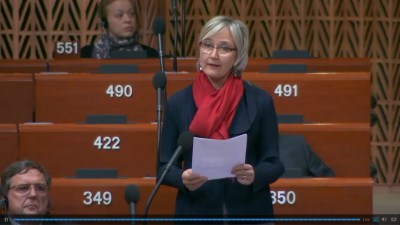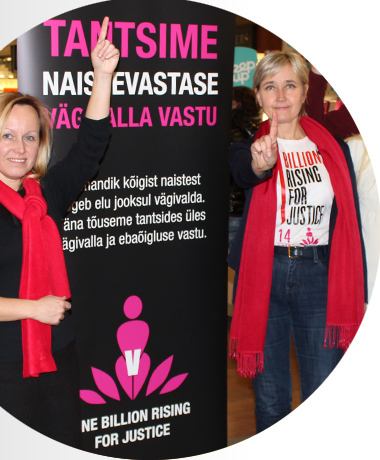Forced Migration: A New Challenge
Friday, 22.04.2016, 15:15 / SEISUKOHAD / RSS

Migration impacts us all
At the time when Europe is still figuring out ways to deal with the current flow of refugees who have fled their homes because of war and instability, it might seem senseless to start talking about migration-related problems and threats that are not yet prevailing. In reality, the topics of environmental migration – and this report – are more timely than ever.
While it is true that countries like India or Bangladesh are in a much greater danger from natural disaster or food insecurity than, for example, my home country Estonia, that has abundance of clean water, forests, arable land, it is important to realize that the global village we live in is highly interconnected. Events that take place in geographically distant locations affect us all.
Never waste a good crisis
There is a saying “never waste a good crisis”, and while I refuse to use it to describe circumstances that have caused as much suffering and loss of life as the current migration crisis has, there is a point to be made about the lessons that Europe needs to learn from this.
European countries, much less Europe as a whole, were not ready to deal with migration flows of this magnitude. Given just how multidimensional and dynamic the modern world is, it is evident that it is impossible to predict specific future problems and work out detailed solutions for challenges that have not emerged yet, but what we have to do is to do our best to think through the possible threat scenarios and investigate and plan possible measures.
Importance of the Report
This is the main reason why I really appreciate this report and its contribution to the better understanding of the nature of forced migration. The report makes an important distinction between climate processes and climate events, and highlights that while the world is interconnected, there are hardly any workable one-size-fits-all solutions, and therefore every country and region need to be assessed separately.
I agree with the premise that while the 1951 Geneva Conventions provide the basis of our action when it comes to dealing with migration, attaching an additional protocol to it would be helpful. In my mind, it should outline our commitment to not only receive people who have been given a refugee-status, but also do more to help them better integrate into our societies.
A visionary approach to solving problems
Dear colleagues, tackling the problems of the future, be they migration-related or not, will take the ability to put problems into context, evaluate the threats and confidently act on chosen strategies.
But most importantly, we need to show reinforced commitment to upholding human rights and the principle of equal treatment. Merely a political agreement on how to solve a major problem will not suffice, workable solutions need to involve whole of societies. As parliamentarians, it is our responsibility to make sure we leave a better world for the future generations, but we also have to inspire them to cherish the values we share and make them carry on our belief that, first and foremost, it is our values that bind Europe together.

